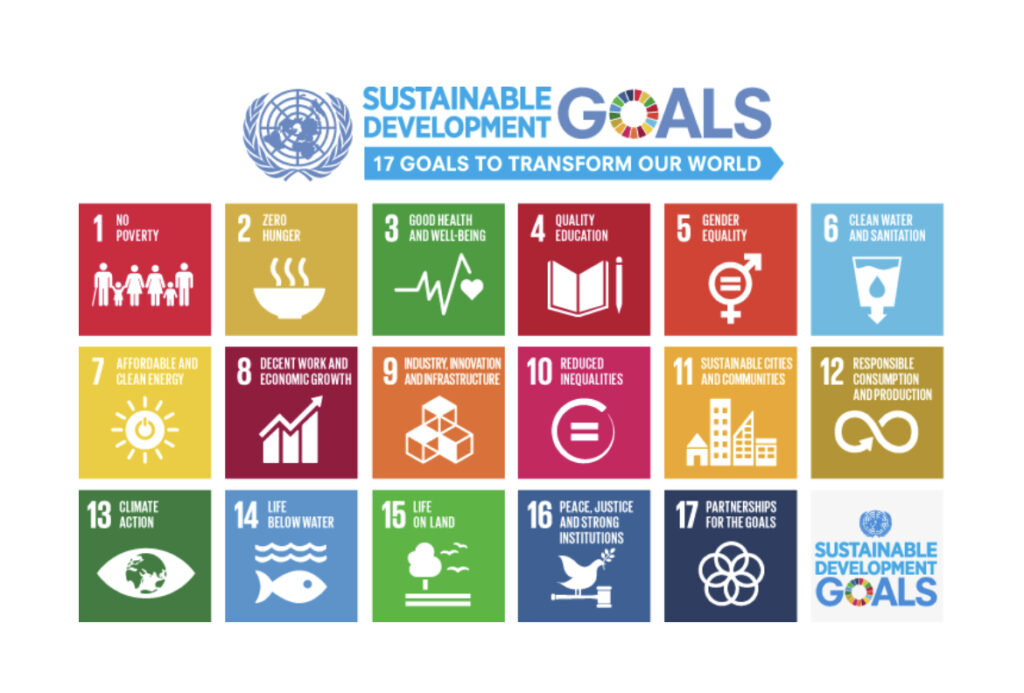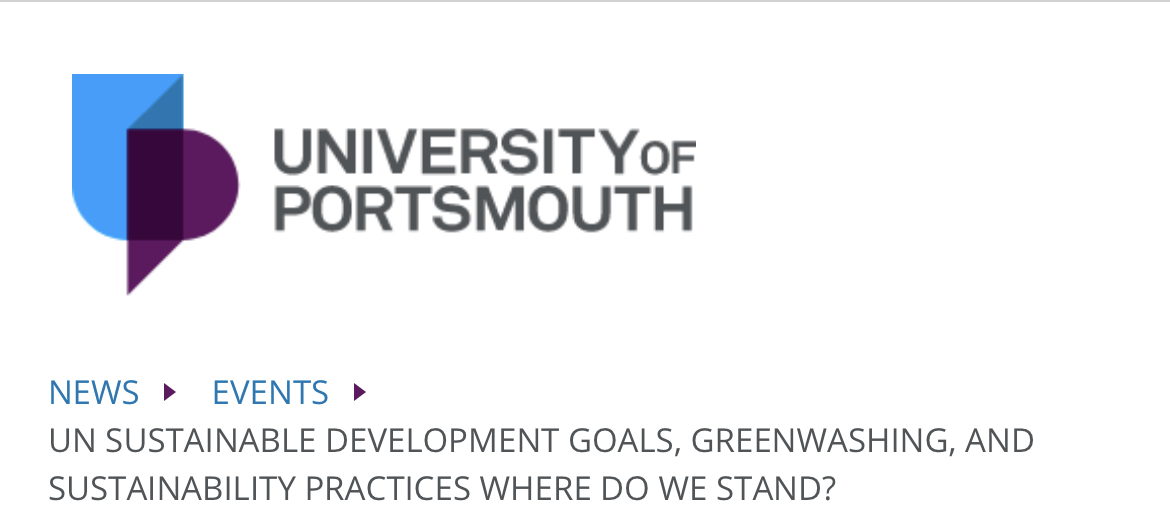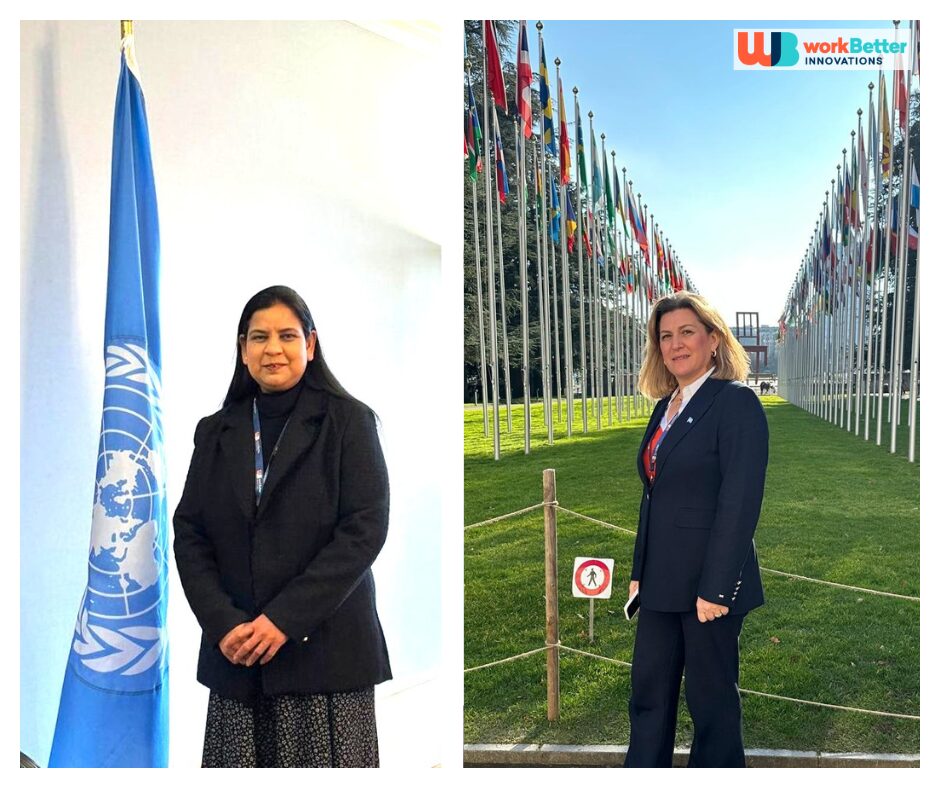15th September 2022. University of Portsmouth Business School hosts WBI Executive Director Dr Bonny Ling at their international conference ‘UN Sustainable Development Goals, Greenwashing, and sustainability practices – where do we stand?’.
Greenwashing behind the ‘ESG’ paravan
Alongside academic peers from the fields of business, innovation and law, Dr Ling’s talk brought the often ignored factor of social or human sustainability into the spotlight. In other words, she eloquently put the S back into the acronym ESG, which is a new business ecosystem increasingly adopted by investors when choosing where to funnel their funds into. So what does ESG mean and what does it stand for?
ESG is, as noted above, an innovative business model, whose aim is broaden the perspective of businesses, traditionally focused mainly on financial gain, to include responsible environmental (E), social (S) and governance (G) criteria. In theory, the model is used by businesses to hold themselves accountable in front of potential investors/ actual shareholders, looking to avoid losses caused by risky/unethical practices. Investor interest in ESG may be thus ethically as much as financially motivated as they seek reassurance in the face of potential human/ natural disasters. (see, for example, BP’s Oil Spill in the Gulf of Mexico in 2010, or Volkswagen’s emissions scandal in 2015).
Where does the ‘greenwashing’ term come into all of this? Well, as Dr Ling’s speech took care to point out, businesses would often use the ‘ESG’ label as a branding tool in their advertising campaigns, without actually following through with action. “How many of these reports can we recall that address the full range of International Labour Organization’s Fundamental Principles & Rights at Work?”.
- Abolition of child labour
- Elimination of forced labour
- Elimination of discrimination
- Freedom of association and collective bargaining
- Safe and healthy working environment
She warned against various corporate methods of virtue signalling, such as recycling office waste or ‘switching the lights off’, that are used to mask over companies’ own inaction over issues like fair labour practices and the human cost of their business activities.
Climate displacement- Modern slavery
What transpired from Dr Ling’s talk is how often the term ‘sustainability’ is misunderstood as only meaning to be eco-conscious. It goes far beyond using recyclable cups or buying second-hand products. Sustainability means taking into account all factors, from the environmental to the social and systemic (governmental) and realising their interconnectivity. To make the point more graspable, she referred to emerging literature on the nexus between climate-induced migration and labour exploitation that could amount to modern slavery.
The talk reminded once again of reports, which dramatically illustrate what social and human rights advocates have been trying to say for a long time:
“it is the world’s poorest, those who are the least responsible for carbon emission over time bearing the greater negative impacts of climate change”.
How? An example is when global emissions rise to an uncontrollable level causing sever weather disruption and global warming, this results in water levels to rise or draughts, that will predominantly affect the livelihoods of people living in underdeveloped countries. As a consequence, those affected will be seen forced to flee their homes, in search of work and survival elsewhere. Their desperation will place in the more vulnerable position to be exploited, trafficked and forced to work in underpaid, inhumane conditions. For further research on what happens when the climate displaced come under growing factors of poverty and labour vulnerability, see the specialised body of work on climate-induced migration and labour exploitation.
The Blue Economy
In a move towards real sustainability, beyond the greenwashing of purported ‘care for the planet’, Dr Ling introduced the work of the University of Portsmouth’s Blue Centre of Governance. There, together with colleagues prof Leila Choukroune and Prof Failler, they push for the recognition and protection of social rights in alignment with discussions on sustainability and the environment.
We believe it is fundamentally important to focus on the individual, his or her rights in the blue economy. After all, 90% of global trade is on the ocean, carried out by people whose lives need genuine engagement and progress on all 19 SDGs (from hunger, schooling, a responsible economy, to partnerships).
Once businesses and stakeholders realise the real cost of the climate crisis, exponentially inflated by the cost of human lives and livelihoods, perhaps the motivation to turn the lights off and shop consciously will be even stronger. They will also realise that merely cutting down on energy costs is not enough to call themselves sustainable, until their workers have received their full workers rights.







